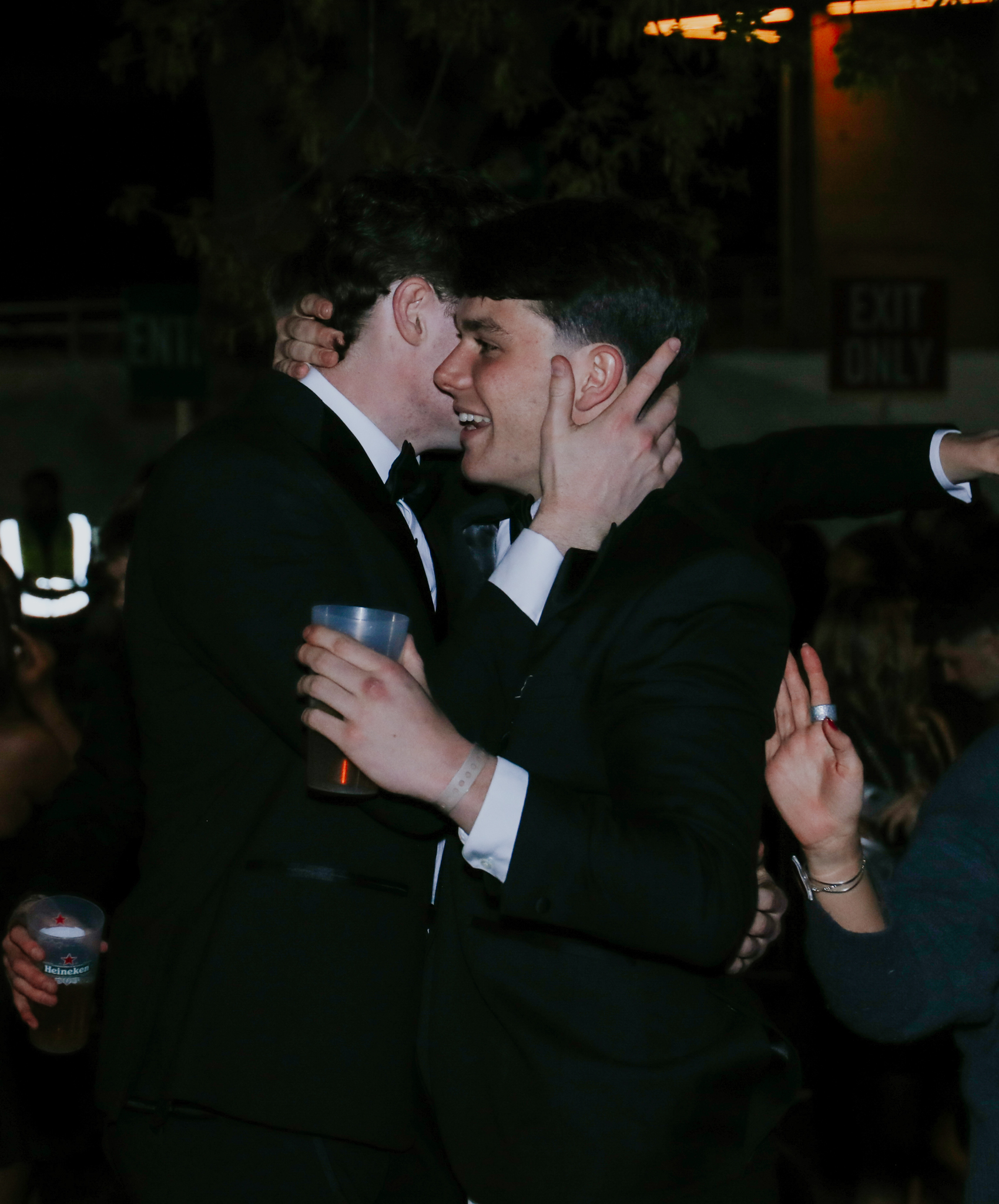How can we call Trinity Ball (T-Ball) great if every year we are disappointed? T-Ball is often called Europe’s largest private party, and Trinity’s biggest event. T-Ball hosts 7,000-7,500 guests yearly on Trinity’s campus, spanning multiple stages of high-profile artists, DJs, and acts.
However, tickets for T-Ball cost nearly €100, and for what? Confidence Man played in Dublin for €32, why are students paying nearly triple for the same thing? Tickets are available for students, staff, and alumni, meaning that nowhere close to all students (22,000 undergraduates and postgraduates) can attend. Some never do. Lineups have also declined. T-Ball used to attract big names, like The Clash in 1977, U2 in 1979, and The Smiths in 1983. Even in recent history, Calvin Harris played in 2009, Charli XCX in 2013, and Kneecap in 2019. The lineup this year was a big mess of “Who?”
Beyond the lineup, the T-Ball experience can be miserable anyway. Getting separated from friends for a second means spending hours searching through legions of your most intoxicated peers (who also saw you alone at T-Ball). More time still might be spent waiting to pee, only to see four of your colleagues tumble out of one bathroom deliriously high. Otherwise, you may spend T-Ball attending to your friend who decided to execute an injurious stunt, telling their Mum, “they didn’t even have much to drink!”
This year, especially, dodging the increased security has never been harder, with nowhere to hide in the vast sprawls of empty dance floors flanked by impenetrable crowds. By minute 30 of waiting for a glass of water, walking on broken heels, evading vomit, dodging everyone you’ve ever liked on Hinge who is also in the queue, praying you didn’t have a public nip-slip in the techno tent, you may be wondering: why did you pay for this experience?
But is T-Ball actually worse, or has our relationship to joy become more cynical? The ‘Golden Era’ of T-Ball in the ‘70s and ‘80s looms in the student consciousness, but we are haunted by a story. Broken heels, the Gardaí, drug use, and dehydration are not unique to the 21st Century. Those who fall victim to this “Nostalgia Trap” seek the story. The immediate pleasure and beauty pursued by such T-Ball critics are futile, and the story cannot be replicated in reality.
But we all still go. We buy dresses, we violate the terms of our leases for pre-drinks, we accept security checkpoints, and we dance.
In the Bible, Abraham does not seek to sacrifice Isaac at Mount Moriah because he knows it’ll work out, instead, he does so on the strength of the absurd. The absurd belief that his son will be returned, a leap into faith. Indeed, every year like clockwork, we wake up at eight A.M., pay for tickets, and attend T-Ball. We have no rational reason; T-Ball isn’t “cool”, it isn’t comfortable, and it isn’t celebrated. But we choose it anyway, every time.
The truth is, T-Ball isn’t about the headline act, the drink, or the pictures. T-Ball is the people. It is the stupidity of seeing the quietest person in your tutorial, blind drunk, eating a roll in a tuxedo on the GMB steps, shouting: “I love you!”. T-Ball is the magic of the collective. Moving together, dancing together, cowering together. The event may fail you, but the people will not. It is not only special but sacred to come together in this way.
To have faith in T-Ball is to have faith in the idea that fun can still be made, even now, even here. How many times have you said, “I’d pay anything to see that guy in my tutorial get his due”. At T-Ball, for the price of €100, you can see him get denied entry for being too drunk.
To have faith is not to deny! Abraham was not naive. He knew sacrificing his son was insane. But he had a duty to God, and believed all the way up the mountain that his son would be returned. Trinity Ball is our masterpiece and our mess. In this bizarre dialectic, we must choose to synthesise. Accepting both, never denying their tension, we live in this duality and love T-Ball with all our hearts. Faith is accepting that something is broken and choosing to love it anyway. Not because it is good, but because it is ours to love.
College is often transactional and linear; marks, internships, networking, LinkedIn, Pav Friday. T-Ball reminds us that the romantic, the ridiculous, and the weird matter too. In T-ball, we live in a dichotomy. We are doubly horrified and delighted. We break from sequence and taste eternity.
T-Ball is an act of belief in the magical. It is the idea that life is worth celebrating even when it doesn’t live up to the hype. T-Ball will undoubtedly disappoint again. It will be too loud, too expensive, and your dress will be ruined. But we must approach it, trembling, with the absurd belief–not in perfection, but in our right to joy.
The Knight of Faith walks among us unnoticed, indifferent to outcome. This is not delusional, but because the Knight of Faith loves in silence, inwardly. In our cynical age, where irony is king and fear of cringe terrorises our social institutions, to love something sincerely is radical. To love T-Ball is to insist on happiness, even when it feels inconceivable.







